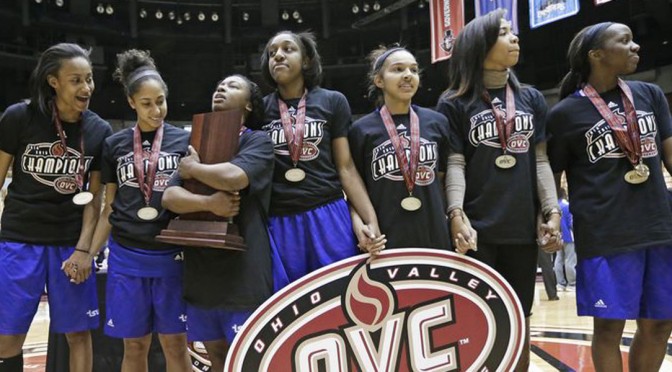
A new study from Middle Tennessee State University suggests members of women’s basketball teams at historically black colleges and universities are disproportionately penalized.
Jessica Kern, women’s basketball coach at Tennessee State University, says the study highlights a need for greater cultural awareness in college athletics.
Kern refers to the dribble-drive offense — “play downhill, attack first and think later” — an approach that she says is commonly used at HBCUs, including hers.
“You will see a lot of historically black institutions press a lot,” she says. “That can sometimes come across as being quote-unquote ‘too aggressive.’ ”
It’s an energetic style of play, abetted by a boisterous atmosphere. Kern explains getting into the game and being excited about a play is part of the culture at HBCUs.
“Our fans are loud. They’re rowdy. They’re supportive and loyal,” Kern said. “The battle of the bands is an amazing thing. It’s louder than anywhere else you’ve ever been. That’s part of the reason a lot of students choose to come to an HBCU.
“Now, I’d be the first to tell you. There are certain officials I know I have to approach differently.”
She’s responding to conclusions from the MTSU study, which adds to assumptions of racial bias in college athletics. Researcher Andrew Dix, an assistant professor who studies sports communication at MTSU, looked at the number of personal fouls called on members of women’s basketball teams from 333 institutions over a 10-season period.
He found that even though HBCUs comprised only about 7 percent of the institutions in the study, referees called the most fouls on teams from those schools. In fact, eight out of the fifteen most penalized teams were from HBCUs.
Dix writes in the study that the findings point to a need for reflection and awareness from the athletic community on the larger socio-cultural challenges confronting HBCU sports teams.
“Although it is important to consider the unique cultural sphere that exists at HBCUs, it is of greater importance to address whether racial inequalities have adversely impacted female athletes who attend HBCUs,” Dix wrote in the study.
“The limited amount of research concentrated on the intersection of female race and referee bias is troublesome,” he added.
As a woman of color, Kern says she has seen bias play out throughout her own athletic and coaching career. But she also acknowledges officiating is a hard job.
“Do I think there are disparities? Yes. But do I also think there’s a humanistic component to officiating. Sure. I think officials just like anyone else understand the lay of our land right now. Things are a bit sensitive,” she said.
She explains the reality is coaches often adjust their approach based on the situation. But she adds, “we are in an era now where we teach our young women to be confident, to have a voice and be heard and seen,” she said.

